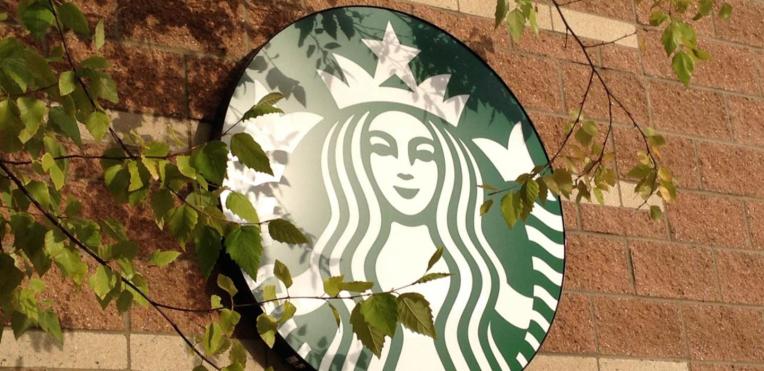Starbucks will unveil its web3 initiative, which includes coffee-themed NFTs, at next month’s Investor Day event. The company earlier this year announced its plans to enter the web3 space, noting its NFTs wouldn’t just serve as digital collectibles, but would provide their owners with access to exclusive content and other perks.
At the time, Starbucks was light on details as to what its debut set of NFTs would look like, specific features they’d provide or even what blockchain it was building on. It said the plan was likely to be multichain or chain-agnostic, hinting at plans that weren’t yet finalized.
Overall, the coffee retailer kept its web3 news fairly high level, explaining simply that it believed digital collectibles could create an accretive business adjust to its stores and that more would be revealed later in 2022.
While some companies jumped on the NFT bandwagon without much thought as to how their investments would fit in with their larger business goals, Starbucks seems to be attempting a different approach. It sees the collectibles as an extension of customer loyalty. In fact, the company even brought in Adam Brotman, the architect of its Mobile Order & Pay system and the Starbucks app, to help serve as a special advisor on the project.
Mobile Order & Pay has been one of Starbucks’ biggest successes, in terms of tech innovations. The company was one of the first to introduce the concept of a digital wallet, even before Apple Pay became ubiquitous. And as broader mobile payment adoption has grown, Starbucks mobile ordering has, too. In the past quarter — Starbucks’ fiscal Q3 — mobile orders, delivery and drive-through combined drove 72% of Starbucks’ U.S. revenue. In addition, the mobile ordering sales mix grew to a record high of 47%, up 13% year-over-year, following COVID-driven changes in consumer behavior, the company said.
Starbucks founder and interim CEO Howard Schultz, who returned to the company in April, teased its forthcoming web3 initiative during this week’s earnings call with investors.
“We have been working on a very exciting new digital initiative that builds on our existing industry-leading digital platform in innovative new ways all centered around coffee and most importantly, loyalty, that we will reveal at Investor Day,” Schultz said.
The company had previously announced its plans to host its 2022 Investor Day in Seattle on September 13, 2022.
Schultz continued, “we believe this new digital web3-enabled initiative will allow us to build on the current Starbucks Rewards engagement model with its powerful spend to earn stars approach while also introducing new methods of emotionally engaging customers, expanding our digital third place community, and offering a broader set of rewards, including one-of-a-kind experiences that you can’t get anywhere else, integrating our digital Starbucks Rewards ecosystem with Starbucks-branded digital collectibles as both a reward and a community building element.
“This will create an entirely new set of digital network effects that will attract new customers and be accretive to existing customers in our core retail stores,” he added.
Though the details aren’t yet fleshed out, the approach here sounds potentially interesting. The company hadn’t before clarified that the NFTs would be tied directly to Starbucks Rewards.
Currently, customers earn Stars with purchases in the app or at Starbucks stores, which can then translate into tangible rewards — like free drinks. It appears that the new NFTs will now be incorporated into part of this loyalty program, somehow. If customers were to “earn” the collectibles through everyday purchases, perhaps, that could onboard more people to the web3 ecosystem. This is one of the challenges the space faces today, where purchases of digital art and collectibles often come at high costs and with sizable fees. What’s more, the digital program could give customers a reason to care about NFTs, if the rewards and “one-of-a-kind” experiences end up being something actually worth earning. (Of course, that remains to be seen.)
There is some indication that consumers are interested in easier ways to enter the web3 space, however. For example, the crypto rewards app Sweatcoin has become a breakout hit thanks to how it rewards users with “Sweatcoins” for every 1,000 steps they walk. The app this past quarter was No. 4 by global downloads and No. 6 by monthly active users on data.ai’s list of “Top Breakout Apps” — meaning, those that saw the largest absolute growth in downloads in the quarter. There’s also now a good handful of games offering play-to-earn models, which aim to tie a fun activity like gaming to cryptocurrencies or NFTs. These have seen more mixed success as some gamers are opposed to the idea.
During the call, Schultz also stressed the value of catering to the younger consumer. Though his comments were more of a reflection of Gen Z’s demand for Starbucks’ cold drinks and iced shaken espresso — which drove sales in the quarter — a web3-based loyalty program could serve as another way to attract younger consumers to the brand.
“We don’t want to be in a business where our customer base is aging and we have a less relevant situation with younger people,” Schultz said, before touting that the company has “never been, in our history, more relevant than we are today to Gen Z.”
“To me, that cohort is so powerful, and the attachment rate that we have with them and the loyalty is just building,” he added.
Starbucks posted strong earnings in the quarter, beating Wall Street’s expectations despite the economic challenges. The company reported revenue of $8.15 billion versus $8.11 expected, and earnings per share of 84 cents adjusted versus 75 cents expected.
